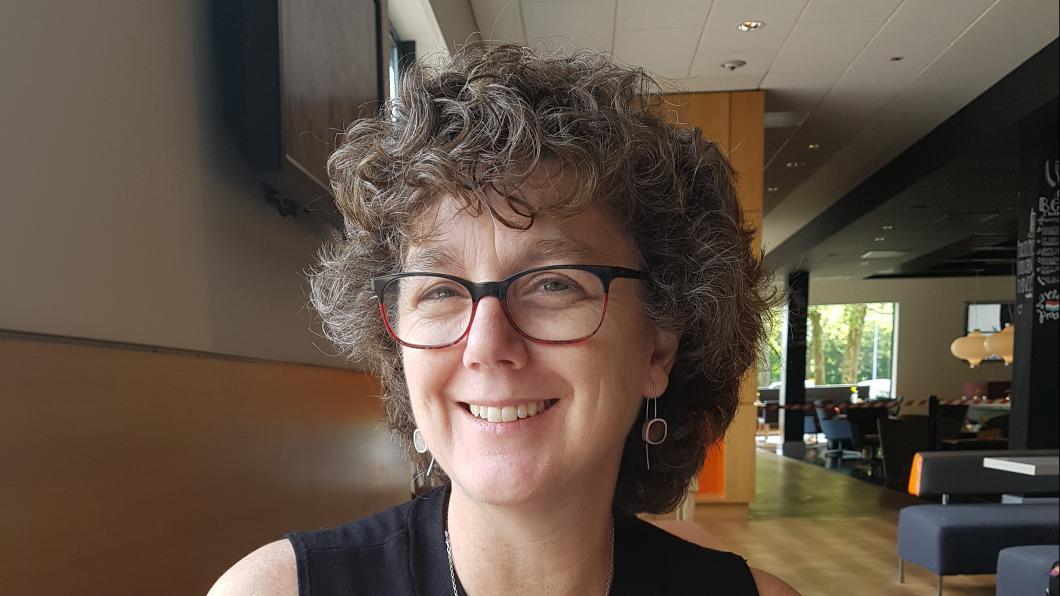
The 13th Annual Bloorview Research Institute (BRI) Symposium will take place on Thursday, November 29. The theme this year is Advancing the global impact of childhood disability research: Driving forward discoveries for inclusive and meaningful life-changing impact. From lived experience to informative breakout sessions to a dance performance, the symposium will provide the opportunity to showcase the impact of discoveries happening at Holland Bloorview on a global scale.
Register to reserve your spot now.
Dr. Christine Imms is a professor of occupational therapy at the Australian Catholic University. She has a long-standing interest in understanding participation outcomes of those with childhood-onset neuro-disability.
Using a range of methods and approaches, Dr. Imms' research has predominantly involved children and young people with cerebral palsy, and been focused on describing patterns of participation, developing measures, designing and testing interventions of relevance to occupational therapy practice.
We asked Dr. Imms a few questions about her research and why she's travelling many miles to attend the 2018 BRI Symposium. Learn more below!
Q1: What drove your interest in occupational therapy?
I became interested in occupational therapy as a teenager (last century) when I saw I could combine my interest in being with people who had health care needs with engagement in daily activities of importance to people. Back then I thought it was the best of all worlds – health care and fun – as I was taken with the idea of promoting leisure and work.
I had to leave home at age 17 to study occupational therapy (OT) as I grew up on the island state of Tasmania where the university does not offer courses in the allied health professions. Over time I’ve reflected repeatedly that it was one of the best decisions I ever made. I have been able to work in many different clinical organizations, in both Australia and Canada, with people of all ages, in mental and physical health care settings. I have also had the pleasure of becoming an academic, focused on research and education of the next generation of occupational therapy practitioners and researchers.
Q2: What aspects of childhood disability – including research – interests you most and why?
I have always been most interested in what helps or hinders people doing what is most important to them or others around them. When a child is born with complex needs, working with families and children to learn how this child learns, to assist in solving the daily problems so that self-care is managed as efficiently as possible, and to ensure that opportunities for leisure and learning are maximized, was the focus in my practice.
As a practitioner, I wanted to know that what I did was useful and effective. As a childhood disability researcher, I’ve focused on studying occupational therapy interventions and related measures so that I could contribute knowledge about whether occupational therapy was useful and effective. My abiding interest in notions of participation is founded on my understanding that people are occupational beings: What you do matters.
Q3: Can you give a sneak peek into what you will be speaking about at the 2018 BRI Symposium?
I’ll be talking about my favourite topic: Participation. This word has become commonplace in paediatric rehabilitation since publication of the International Classification of Functioning, Disability and Health (ICF) in 2001.
Participation has always resonated with me. The advent of the ICF has been a catalyst for changing our perspectives in paediatric rehabilitation, and through my talk I want us to think about that, and about how we might move forward to know and address the next most important questions for children with disability.
Q4: What is your personal passion behind your research?
My personal passion is a thirst for knowledge – knowledge that changes how I think and act, and knowledge that I can share. I also have a passion for engaging with others in what I do – all my research is collaborative, and I sincerely love my work with students. So, I guess I have a passion for being right – and I am terribly conscious of being wrong – and a firm believer that two heads (or more) are better than one!
Q5: You are coming all the way from Australia to speak at our Symposium! Why do you feel it’s important to collaborate with international schools of thought on topics such as childhood disability, approaches to research, and advancing research capacity?
It is my immense privilege to be coming from Australia to attend the 2018 BRI Symposium. When I was a young adult, travel was prohibitively expensive - especially from Australia (to anywhere). When I moved to Canada with my husband and young family in the mid 1990’s, it was because we felt we needed to ‘leave home’ to learn about the world.
When I completed my master’s degree in the late 1990’s I was explicitly congratulated on including a reference to a paper that was published in the prior year. Now, the world is much more accessible and the possibility of pulling together and leveraging off each other is real. The critical importance of ensuring that we do that, rather than continuing to work in our own silos is because it brings the possibility of increased pace of knowledge growth and practice change for the benefit of children and families.
The field of childhood disability is small, and my experience is that it can be overlooked.I believe that building international alliances and programs of research that complement and challenge each other is the way to maximize our impact for the benefit of children and families with a disability. That’s why I will be joining you on November 29.